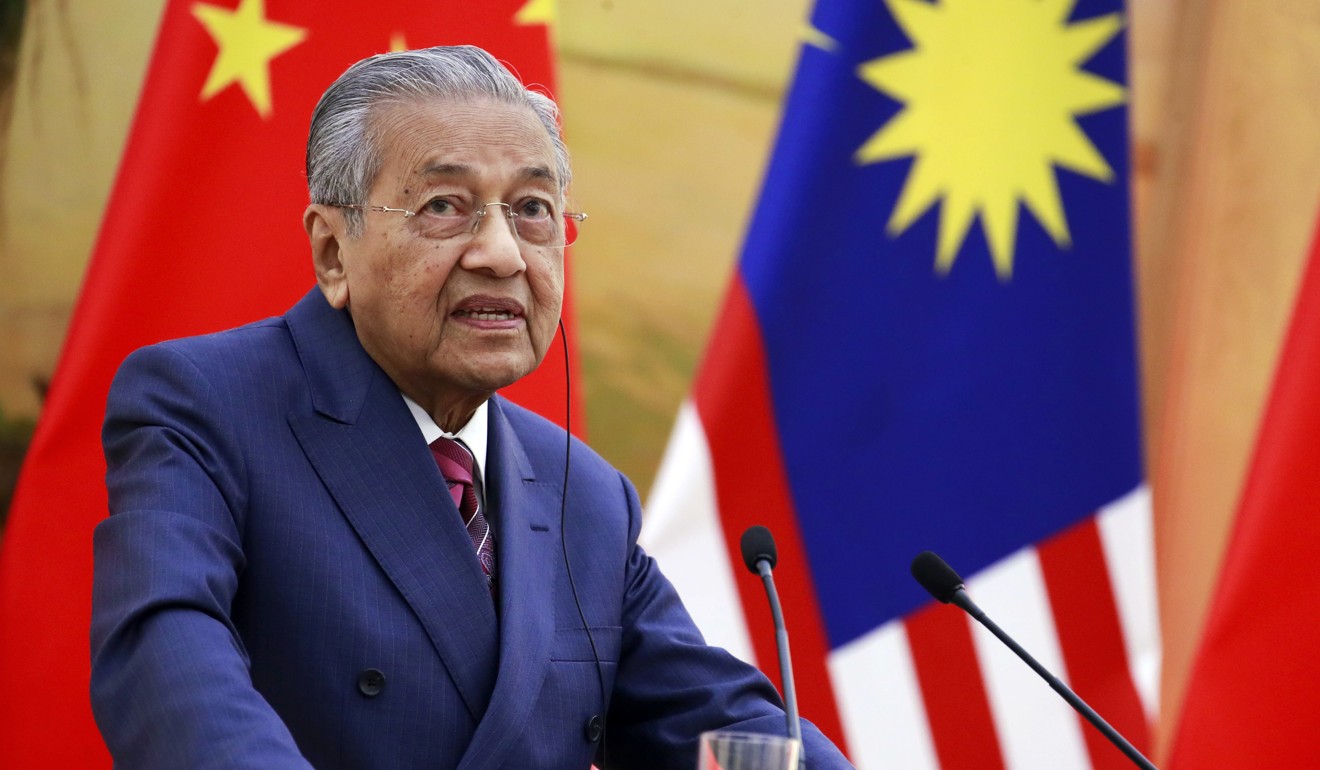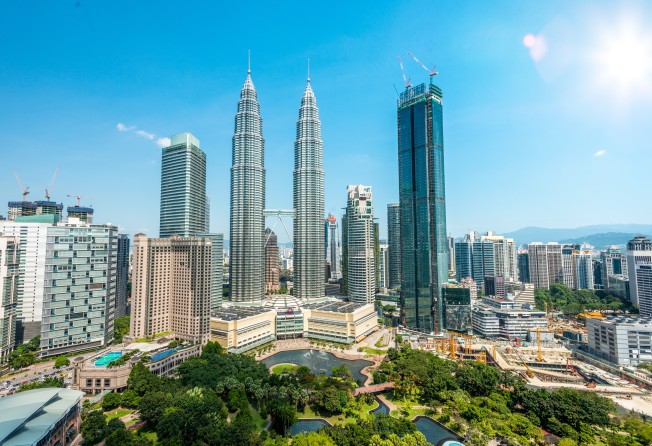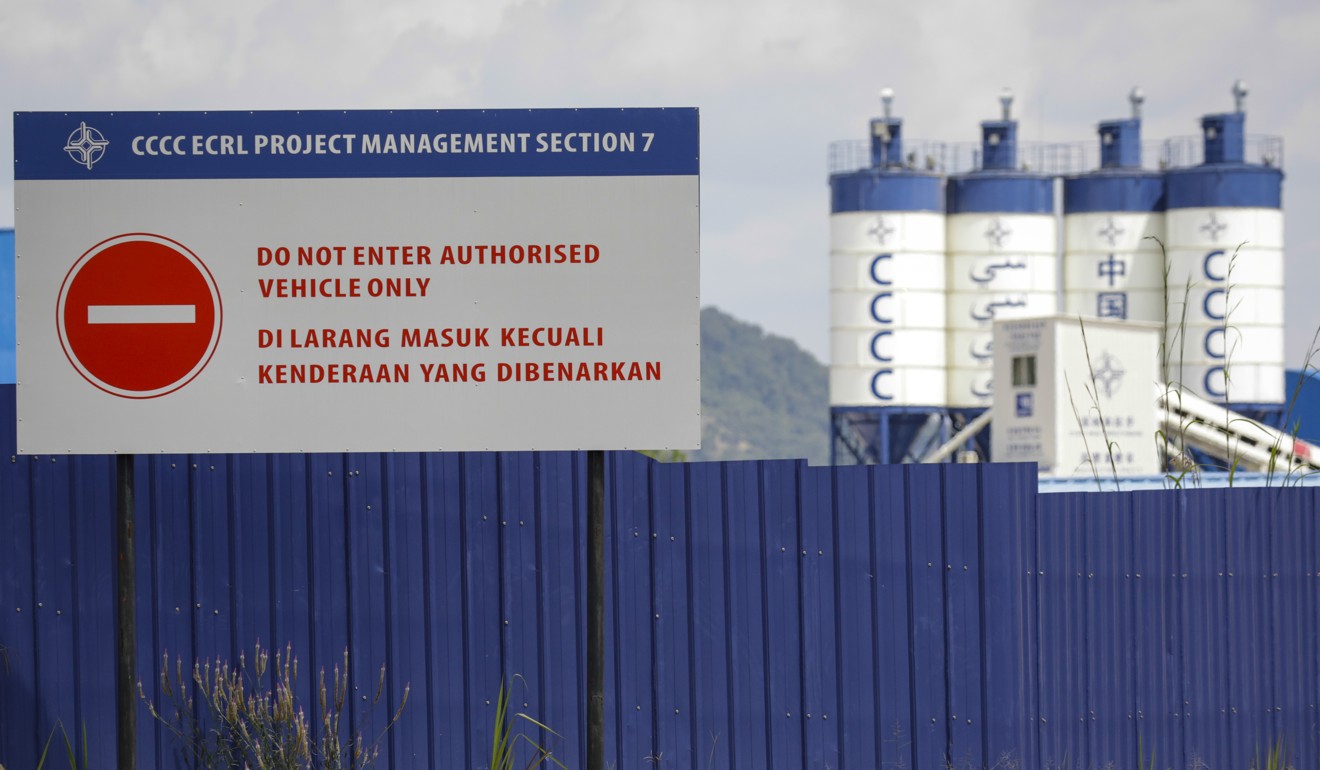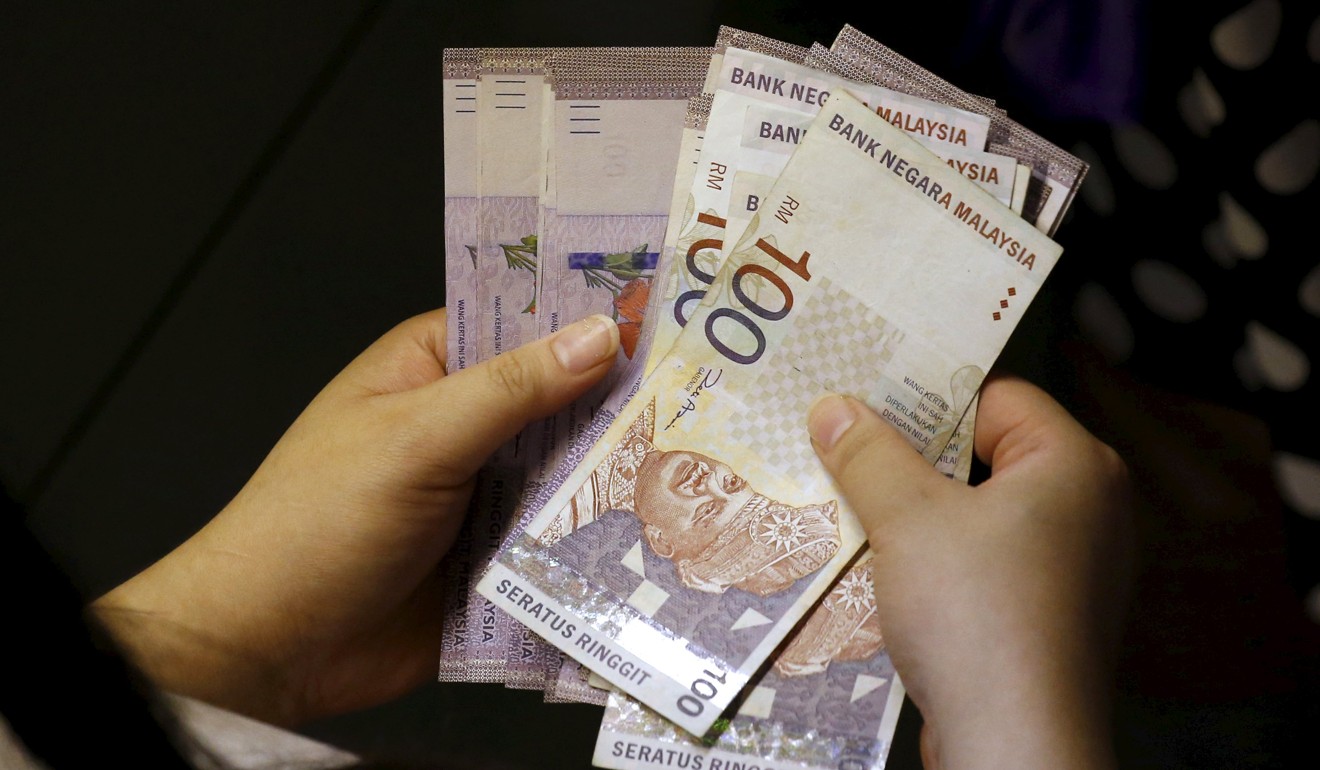
Mahathir’s Malaysia still ‘open for business’ with China despite stalled rail link: top trade official Dr Ong Kian Ming
- Upheaval over Beijing-financed projects such as the ECRL has not affected bilateral trade, says deputy minister of international trade and industry
- Dr Ong Kian Ming prefers to view economic ties in terms of the countries’ total trade volume, which reached a record high of US$108.6 billion in 2018

Malaysia’s protracted negotiations over China-financed mega projects such as the multibillion-dollar East Coast Rail Link (ECRL) have not dampened trade between the two countries, and it is still hungry for business from China, according to its deputy minister of international trade and industry.
Dr Ong Kian Ming also said Prime Minister Mahathir Mohamad’s recent decision to attend the second official summit on China’s Belt and Road Initiative in April – making him the first world leader to confirm his presence – showed Kuala Lumpur’s continued commitment towards this “very important relationship”.

“[We can expect] more opportunities to expand our trading and investment relationship with China, and this will continue to set the tone that Malaysia is very welcoming of investments from China,” he said.
“If this can be reciprocated by the Chinese government, it would give confidence to Chinese investors that despite the change in government we are still very open for business and we still want to attract good quality Chinese investment to come to Malaysia.”
Ong, who is in Hong Kong to attend The Economist’s Asia Trade Summit, said bilateral trade ties should be viewed in the context of total trade volume between the two countries, which reached a record high of US$108.6 billion last year.
Malaysia-China trade grew about 8.5 per cent in 2018, he said – greater than the 6.2 per cent increase in Malaysia’s total international trade.
But while Kuala Lumpur commemorates the 45th anniversary of diplomatic relations with Beijing this year, the latter half of 2018 saw the Mahathir administration go back and forth over the China-linked infrastructure projects that it inherited from the previous government.
Soon after taking power in May, Mahathir’s Pakatan Harapan coalition named the 688km ECRL as being among the projects it hoped to cancel on the grounds that they were too expensive and unnecessary. Discussions this year have seen the Chinese contractor behind the rail link’s construction agree to reduce its cost to about 40 billion ringgit (US$9.8 billion), down from the initial price tag of 70 billion ringgit.
“Both countries have shown a commitment to resolving [the ECRL issue],” Ong said. “What we want to have is greater clarity, not just on the cost of construction but also the cost of operations … we want to be able to come to a win-win solution.”
He added that during his visit to Hong Kong, certain Chinese companies had shown an interest in investing in Malaysia’s manufacturing sector.
“The electronics and electrical sector [is one that the northern state of] Penang has a very strong position in, and I think many of the sector’s players in southern China, such as the area around Shenzhen and Guangdong, are [discovering] this opportunity,” Ong said.
“China has been Malaysia’s largest [foreign direct investment] country of origin for the past three years, and we are looking for that to continue in the foreseeable future.”

The ongoing US-China trade war has not been good for small countries like Malaysia, he said, but if tensions could not be resolved, more companies might seek to expand their operations and capabilities in Southeast Asia, while shifting away from an overreliance on developed countries.
This would allow Malaysia and China to further expand their trading relationship, he said.
“Given that Asia is [where] people are looking to for trade and investment opportunities, I think these tensions give an additional impetus to companies, including those in China, to look at trade and investment from a different perspective.”
On Malaysia’s fiscal position, some observers have suggested the Mahathir administration took a big risk in its maiden budget by dipping too heavily into the coffers of state-run oil and gas company Petronas.
Contrary to recommendations to wean the economy off its reliance on oil revenue, Petronas paid 54 billion ringgit (US$13.28 billion) in dividends to the government, including a one-off payment of 30 billion ringgit. According to Ong, however, this will be scaled back in future.
“We relied on Petronas for a one-time payment … to pay back unrefunded GST as well as income tax refunds,” he said, referring to the unpopular goods and services tax imposed by the administration of scandal-tainted former prime minister Najib Razak, who is currently under investigation for a host of corruption charges.
“We see this as a way to not just help the Malaysian people but also small and medium enterprises … this is an indirect stimulus to the economy.”

Ong, who studied in Singapore under an Asean scholarship, said some of the political challenges that the neighbouring nations were currently facing – in regards to airspace and maritime issues – were normal for any countries that were closely interlinked, comparing Malaysia and Singapore’s relationship to that of the US, Mexico and Canada.
“What I am encouraged to see is the commitment from both sides to continue to negotiate and have very frank and open dialogues [on these issues] as well as the high-speed rail between Malaysia and Singapore,” he said.
“There is a long-term relationship between the countries, and deep economic ties … the flow of people, goods and services is something that is very important, and that relationship will only grow.”
And as Pakatan Harapan nears its one-year mark in government, Ong said it will continue to focus on its economic message. “At the end of the day we will be voted back into power depending on how well we do on the economy.”